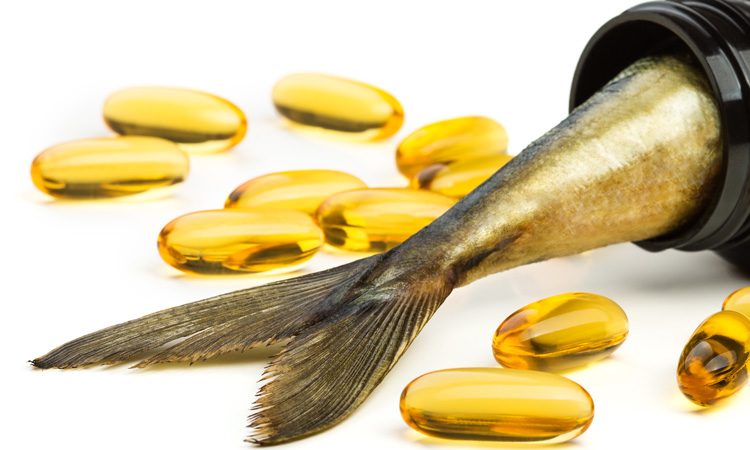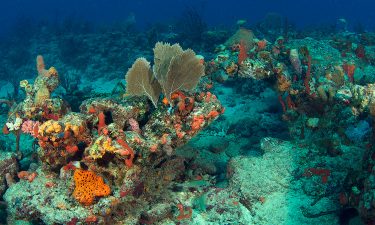Coral reef sustainability: global awareness and solutions
- Like
- Digg
- Del
- Tumblr
- VKontakte
- Buffer
- Love This
- Odnoklassniki
- Meneame
- Blogger
- Amazon
- Yahoo Mail
- Gmail
- AOL
- Newsvine
- HackerNews
- Evernote
- MySpace
- Mail.ru
- Viadeo
- Line
- Comments
- Yummly
- SMS
- Viber
- Telegram
- Subscribe
- Skype
- Facebook Messenger
- Kakao
- LiveJournal
- Yammer
- Edgar
- Fintel
- Mix
- Instapaper
- Copy Link
Posted: 4 November 2019 | Jaclyn Bowen | No comments yet
New Food advisory board member, Jaclyn Bowen, hears from Scott Sensenbrenner, CEO of Enzymedica, to discuss how coral reef restoration is vital for global sustainability.


The Washington Post reported that the State of Florida has withstood more direct hurricane strikes than any other state, and it is often grazed by storms that end up making landfall elsewhere. In fact, the National Oceanic and Atmospheric Administration (NOAA) estimates that 40 percent of hurricanes that will make landfall on the US east coast hit Florida and that 88 percent of major hurricanes have hit either Texas or Florida. This type of significant weather disturbance can wreak havoc on coastal communities, marine habitat and the consequential food chain for years – or even decades.
According to National Centers for Coastal Ocean Science, large storm waves due to hurricanes and tropical storms may result in significant coral reef damage. Unfortunately, a 2006 report by the NOAA summarised that “the strongest hurricanes in the present climate may be upstaged by even more intense hurricanes over the next century as the Earth’s climate is warmed by increasing levels of greenhouse gases in the atmosphere”. In other words, the vicious cycle of coral reef growth and destruction will remain as the global warming pace continues.
The vicious cycle of coral reef growth and destruction will remain as the global warming pace continues
Enzymedica, a Venice, Florida-based digestive health and wellness company, recently created a line of fish-oil with the mission to bring consumer awareness of the need for coral reef protection, sustainability and restoration to Florida’s shores.
I spoke with President and CEO of Enzymedica, Scott Sensenbrenner, to learn more about their recent partnership with the More Marine Laboratory and Aquarium and how it regards sustainability.
Q: How does the coral restoration process work?
A: The strategy to repopulate coral reefs involves a technique called microfragmenting – a process that capitalises on the natural healing process and allows corals to grow 25 times faster than normal.

The stakes are high. In the last 50 years, the Florida Reef Tract – the third-largest barrier reef ecosystem in the world – has lost 90 percent of its mass.
Our fish oil products bear the tag line “Buy a Bottle, Save a Reef,” and we donate at least $1 from the sale of each bottle to coral restoration.
We are humbled that with the support of our customers and retail partners, the partnership has already generated $65,000 towards the restoration programme. The eventual hope is that Enzymedica would donate as much as $250,000 a year – enough to cover the cost of planting roughly 10,000 new corals a year.
Q: How does Enzymedica define sustainability? As the President and CEO, how do you measure if you are meeting or exceeding expectations?
A: Overall, I try to foster an environmentally aware company that has a carbon-neutral footprint and support a variety of nonprofits which fight for animal rights, the elimination of product testing on animals, well-being and care.
In addition, we created a programme which is an initiative centred around making a difference today and in leaving a legacy for tomorrow. We have over 100 solar panels on the roof that help power our facility with low energy LED lighting and we use recycled materials throughout.
Our definition of sustainability is found throughout, from our carbon neutral facility, to the use of sustainable naturally sourced ingredients.
Our measure of sustainability is simply a matter of our absolute commitment in everything we do to not take from the planet, but instead to leave a legacy of making the planet a better place for the next generation.
Q: How does Enzymedica’s corporate commitment to sustainability influence Enzymedica’s innovation and research and development?
A: We literally search the planet for science-based ingredients that are not only sustainable sourced but are of the highest efficacy available. A recent example is when we looked at the Berberine category due to its incredible health benefits for sugar metabolism and immune support. The challenge is that it is grown in limited areas in the world, so rather than cultivating the plant, we use the seeds which are not only sustainably sourced, but also have a higher concentration of the active ingredient.
Q: What’s next on the horizon for Enzymedica?
A: We will continue to expand our initiatives with other nonprofits who can demonstrate that they are making a meaningful difference and are aligned with our sustainability goals.
Related topics
Related organisations
Clean Label Project, Enzymedica, More Marine Laboratory and Aquarium., National Centers for Coastal Ocean Science, The National Oceanic and Atmospheric Administration (NOAA), The Washington Post









